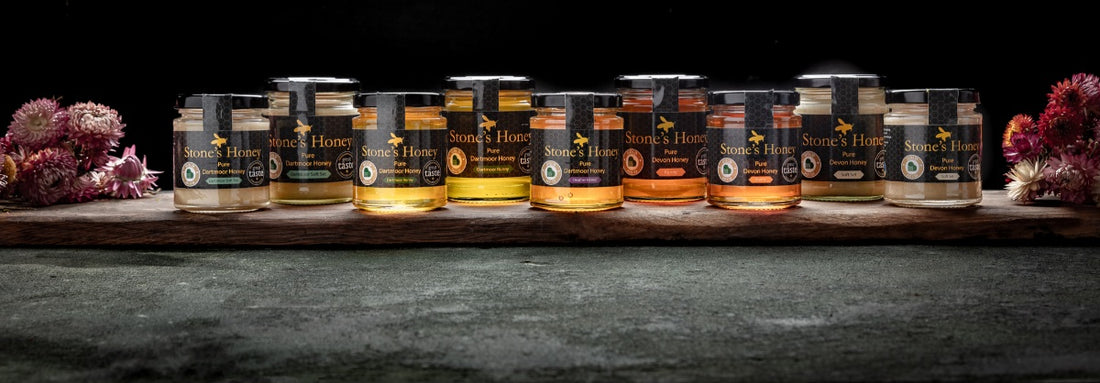The Sweet Truth: Why Local Honey Triumphs Over Supermarket Varieties
Introduction:
Honey, a natural product widely used for its sweetness and versatility, has been a staple in kitchens worldwide for centuries. But not all honey is created equal. While the convenience of grabbing a jar off the supermarket shelf may seem tempting, there are a number of reasons why you should opt for buying local honey. Beyond its delicious and often distinctive taste, local honey boasts a myriad of benefits that exceed those of its mass-produced counterparts.
Let's explore why opting for local honey is a decision that will not only delight the taste buds but will also promote health and support the environment. Why is local honey a better choice than supermarket varieties?
Superior Nutritional Value:
- Local honey is a powerhouse of nutrients, full of antioxidants, vitamins, and minerals (Honey and Health). Unlike supermarket honey, which often undergoes extensive heating, processing and filtration, local honey is typically unheated, unprocessed and unfiltered, preserving 100% of its natural goodness. This means it retains higher levels of enzymes and pollen, offering a richer nutritional profile. These enzymes help digestion and promote overall gut health. Studies have also shown that pollen within local honeys can help alleviate allergies when consumed regularly (Honey and allergic rhinitis).
Pollen found in local honeys is believed to help in alleviating the symptoms of allergies.

Photo by Christoph on Unsplash
Immune Boosting Properties:
2. Did you know that local honey can serve as a natural immune booster? When bees collect nectar from local flowers, they inadvertently transfer trace amounts of pollen into the honey. Consuming this honey introduces small doses of local allergens to your system, potentially desensitising your body to them over time and reducing allergy symptoms. Additionally, the antimicrobial and antiviral properties inherent in raw honey can help fend off infections and soothe sore throats, making it a go-to remedy during cold and flu season (Honey as a potential natural medicine).
Honey has antimicrobial and antiviral properties which may help to protect against coughs, colds and other infections.

Photo by Brittany Colette on Unsplash
Ethical and Sustainable Practices:
3. By choosing local honey, you're not just making a healthy choice for yourself but also supporting your local beekeepers and the environment. Industrial honey production often involves mass-farming and the overuse of pesticides and other chemicals, which can harm bee and other insect populations and disrupt ecosystems. In contrast, local beekeepers prioritise sustainable beekeeping methods, maintaining smaller, healthier colonies that contribute to biodiversity and pollination efforts in your area. By investing in local honey, you're investing in the well-being of bees and the planet (Why bees are essential to people and planet). By buying local, you can also be confident that the product you’re consuming is actually honey (Honey scandal). Recent research has shown that very many supermarket honeys have been adulterated by having cheap sugar syrup added to them (UK supermarket honeys fail tests).
Unparalleled Flavour and Freshness:
4. Taste-wise, local honey reigns supreme. Its flavour profile reflects the unique floral sources found in your region, offering a diverse range of tastes and aromas that capture the essence of your local environment. Whether it's the delicate sweetness of meadow wildflowers or distinctive caramel undertones of Dartmoor heather, local honey provides a taste experience that can't be replicated by mass-produced varieties. Plus, since it's harvested and sold locally, you can enjoy premium seasonal honey whilst making a contribution to both your local economy and natural environment.

The Dartmoor wilderness can provide a wealth of natural resources for your local honeybees.
Photo by Jill Dimond on Unsplash
Conclusion:
In the age of convenience, it's easy to overlook the remarkable benefits of choosing local honey over its supermarket counterparts. From its superior nutritional value and immune-boosting properties to its support for ethical beekeeping practices and unmatched flavour, local honey stands as a testament to the adage that good things truly do come in small batches.
